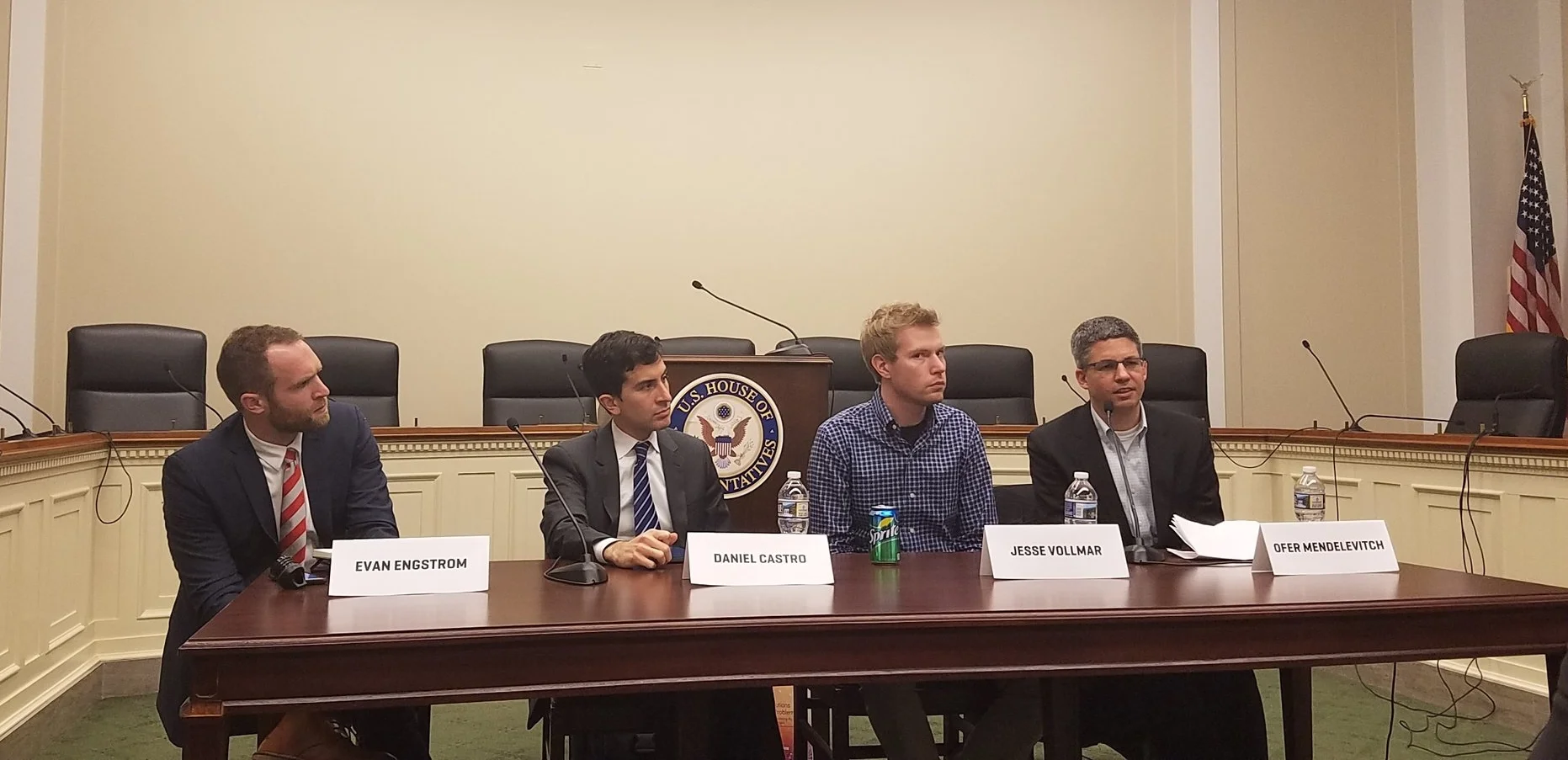Earlier this month, Engine held its first briefing of the year: a conversation around the ways that startups are harnessing Big Data to drive innovation and develop targeted solutions for some of society’s greatest challenges. The event was headlined by Reps. Blake Farenthold (R-TX) and Derek Kilmer (D-WA), who were joined by a distinguished panel of startup leaders and policy analysts.
In his opening remarks, Congressman Farenthold explained that individuals, businesses, and the government are generating unprecedented amounts of data, and that when startups are able to access that data, they can develop innovations that improve the way we live, work, and play. Congressman Kilmer echoed this statement and offered an example from his own district where a startup has capitalized on open weather data to develop a successful app for surfers and fisherman detailing ocean conditions.
Following the Congressmen’s opening remarks, Engine’s Executive Director, Evan Engstrom, moderated a panel that included Daniel Castro, Director of the Center for Data Innovation at ITIF, Jesse Vollmar, founder of AgTech startup FarmLogs, and, Ofer Mendelevitch, Vice President of Data Science at LendUp. Castro provided an overview of the many policy challenges Big Data technologies implicate, including the essential role that government can have in making data open and interoperable for startups. If data is not shared in an useable format, its value is greatly diminished for startups, he explained. He also noted how poorly designed restrictions on data collection and use can have a negative impact on innovation with little consumer benefit. For example, rules that would require startups to have a clear upfront business purpose for collecting particular data will almost by definition chill innovation since innovative uses of data are so often unknown before data scientists can process such data.
Vollmar explained that as a third-party AgTech service provider, his company FarmLogs relies on the ability to access data from farmers, other businesses, and open government sources. He seconded Castro’s statement, arguing that privacy and data security should be managed on a customizable, user-guided basis and that protective regulations limiting his company’s ability to access farm data would be devastating to the technological process and ultimately the broader farm economy. He also noted that companies—startups in particular—have a strong incentive to protect their data, as failing to do so would undermine their credibility and ultimately their business.
Mendelevitch agreed with the other panelists, arguing that when data is over-regulated, innovative new uses are cut off. The data inputs used in LendUp’s process for considering a user’s lendability often derive their value only when they are combined and processed in novel ways. Making one piece of that puzzle less accessible can render the output less meaningful overall, and upfront restrictions on the types of data companies can use often do not take into account this interplay between data sets. He went on to say that when policymakers think about data, they should consider content, rather than size, as the size of a dataset does not alone indicate its risk.
The luncheon event coincided with the launch of a new report by Engine, Private Solutions for Public Problems: How Startups are Harnessing Big Data to Tackle Social Challenges. The report, which addresses similar themes, can be found in its entirety here.


